1. Breaking a Mirror
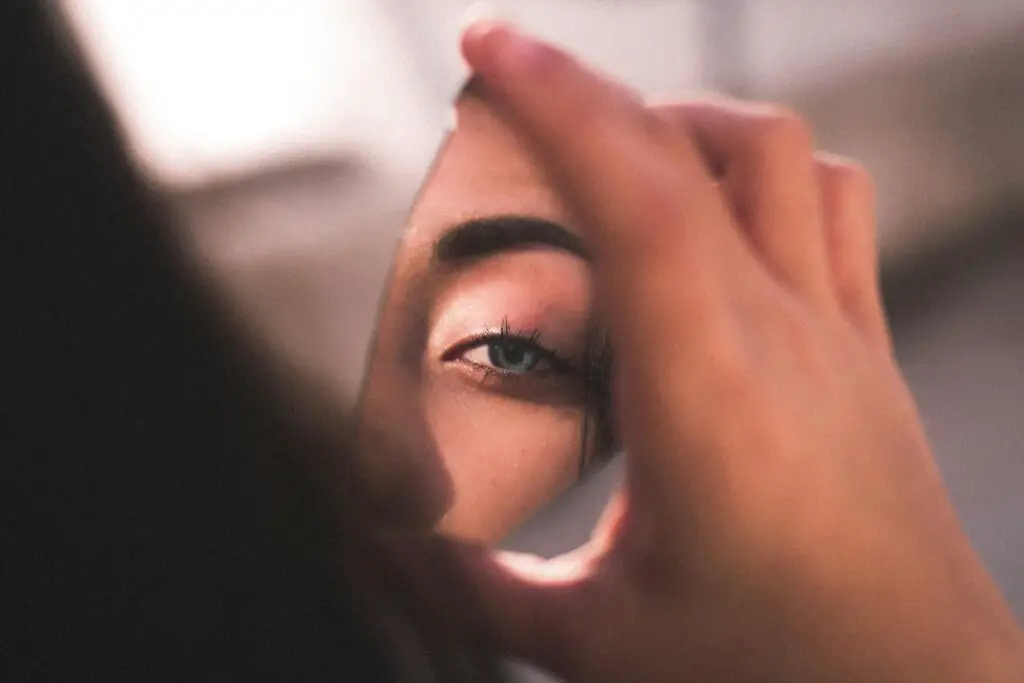
If you ever shattered a mirror, chances are someone immediately gasped and muttered something about seven years of bad luck. That superstition goes way back, tied to the idea that mirrors didn’t just reflect your face — they reflected your soul. Breaking one was seen as damaging your essence, and it was believed it would take seven years for your soul to recover. People used to go to great lengths to avoid looking into a cracked mirror or clean it up quickly like they were diffusing a bomb says USA Today.
Some folks even had little rituals to “undo” the bad luck, like burying the shards under moonlight or throwing them into a river. It’s one of those old beliefs that’s stuck around, even in modern homes full of compact mirrors and bathroom selfies. Something about the sound of breaking glass still makes you wince a little extra. Whether or not you believe in the curse, it’s usually better to just not test it adds VICE.
2. Walking Under a Ladder
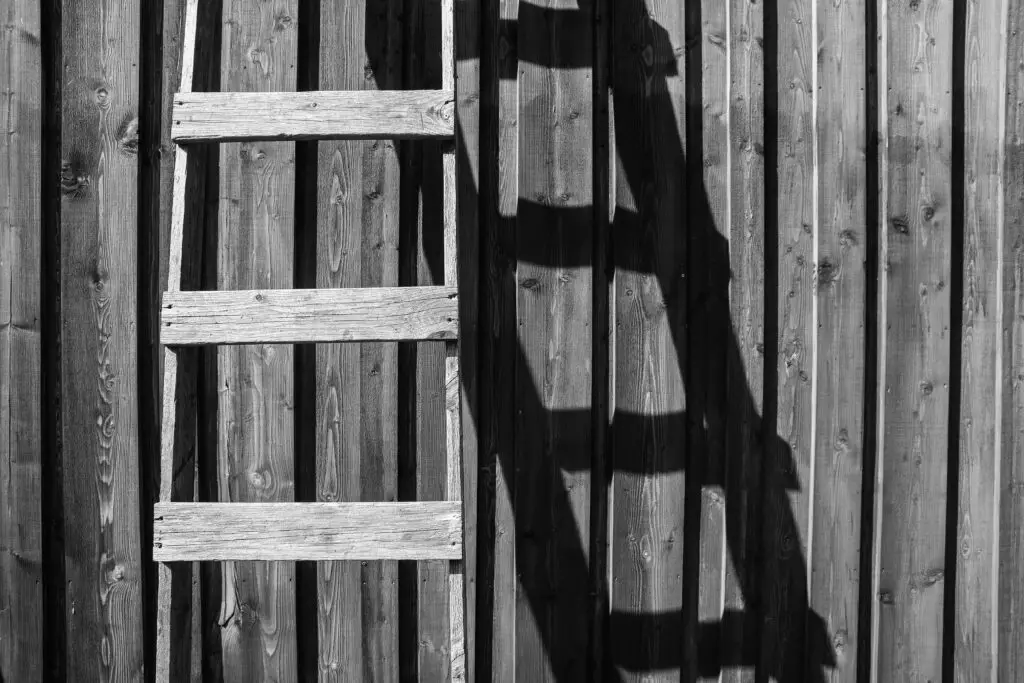
You might’ve grown up with someone shouting, “Don’t walk under that!” whenever you strolled under a ladder. It seems silly on the surface — it’s just a ladder, right? But the superstition has roots in both religion and practicality. In ancient Egypt, a triangle was considered sacred, and a ladder leaning against a wall formed one. Passing through it was like violating divine geometry says Alton Telegraph.
From a safety standpoint, it also makes perfect sense — walking under a ladder can be risky if someone’s up there working. Still, people took it a step further, believing that doing so could attract misfortune or even death shares NPR. To ward it off, some folks would cross their fingers until they saw a dog. Others would spit three times or walk backward the same way they came. Overkill? Maybe. But better safe than sorry, right?
3. Opening an Umbrella Indoors

You didn’t need thunder and lightning for someone to panic over an umbrella — just open one indoors and watch the room tense up. The superstition likely started in the Victorian era when umbrellas were a bit of a hazard to begin with. Opening one inside, especially in cramped spaces, could knock things over or poke someone in the eye. Eventually, that turned into the belief that doing so invited bad luck.
Some say it was tied to old beliefs about angering the sun god by using a protective item when you didn’t need it. Others just chalk it up to unnecessary risk. Either way, you probably grew up with someone scolding you for doing it near a window or doorway. Even now, there’s that tiny hesitation before you pop one open in your living room to dry. It’s the kind of rule you follow without really knowing why.
4. Spilling Salt

If you knocked over a salt shaker at dinner, you might’ve been told to toss a pinch over your left shoulder. That little move? It wasn’t just for flair — it was meant to blind the devil lurking behind you. The idea was that spilling salt, a precious commodity back in the day, was an insult to the gods or a sign of betrayal.
Think about Da Vinci’s Last Supper painting — Judas has spilled salt in front of him. That connection sealed salt’s bad-luck status. To this day, people still instinctively toss it behind them like it’s part of a sacred ritual. Even if it ends up on your floor, it’s better than risking misfortune. Just maybe don’t do it in a fancy restaurant.
5. Stepping on a Crack
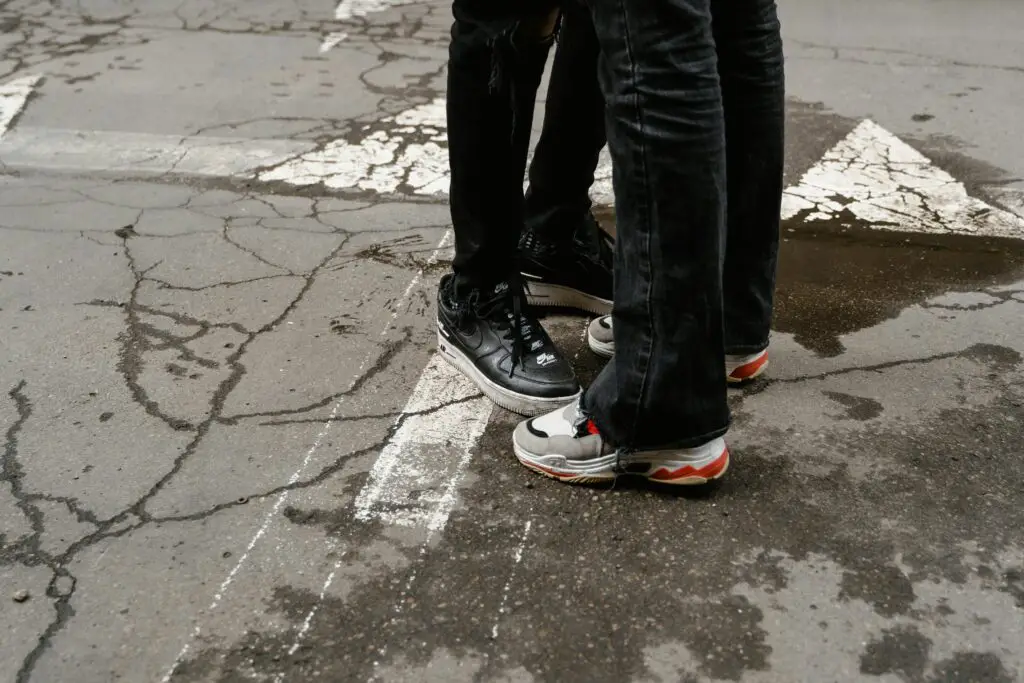
“Step on a crack, break your mother’s back.” That rhyme probably haunted every kid on their walk to school. Sidewalks turned into obstacle courses as we hopped and dodged, all in the name of not hurting poor Mom. While it sounds like a playground myth, the idea has roots in old fears about boundaries and the unseen world beneath us.
Cracks were thought to be literal openings to bad energy or evil spirits. Stepping on them might let something slip through — or worse, pull you in. It turned innocent pavement into something you had to respect. Even now, some adults still avoid them without realizing it. It’s funny how something so small can stick with you for life.
6. Black Cats Crossing Your Path
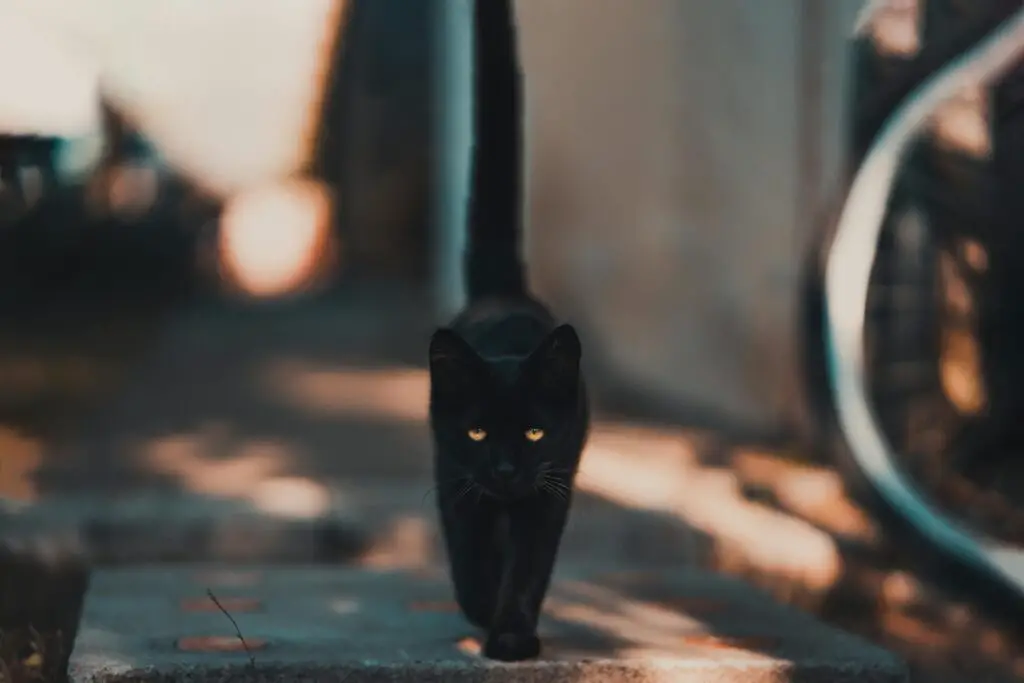
Black cats get a seriously bad rap, thanks to centuries of superstition. In medieval Europe, they were often linked to witches, thought to be their familiars or even witches in disguise. So if one crossed your path, it was believed to be a dark omen — maybe even a sign that death or misfortune was on the way.
Oddly enough, in other cultures, black cats are considered good luck. But in the West, that creepy reputation still lingers, especially around Halloween. Plenty of people will still pause if one darts in front of them on the street. You might even see someone turn around and walk the other way. All that, just because of a little furry creature with a bad PR team.
7. The Number 13

You don’t have to be superstitious to notice that some hotels and buildings skip the 13th floor altogether. That fear even has a name: triskaidekaphobia. The number 13 has been considered unlucky for centuries, partly because it follows 12, which is seen as “complete” (like months in a year, zodiac signs, etc.). So 13 became this odd, unsettling outlier.
It didn’t help that Judas was supposedly the 13th guest at the Last Supper. Ever since, inviting 13 people to dinner was seen as tempting fate. Some people won’t get married, close a business deal, or travel on the 13th. And don’t even think about hosting something on Friday the 13th. That combo really sends people running.
8. Passing a Funeral Procession

There’s something heavy about seeing a long line of cars with their headlights on, slowly making their way through traffic. Many believe that passing a funeral procession — especially if you don’t show respect — brings bad luck. Some say it’s like you’re rushing past death itself, trying to outpace it, which never ends well.
Others think it disrupts the peaceful journey of the departed. It’s why some people pull over or even turn off their radios when one goes by. There’s a quiet reverence that feels natural, even if you don’t know the person. Ignoring that can leave you with an uneasy feeling, like you’ve broken some invisible rule. It’s one of those moments where manners and superstition meet.
9. Cutting Your Nails at Night
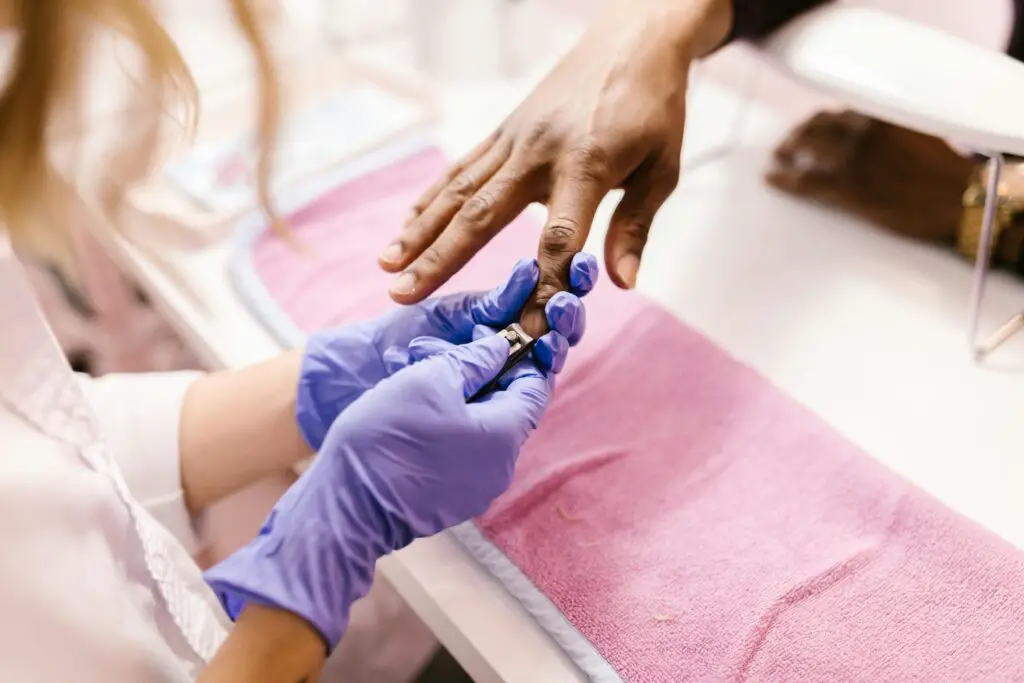
Ever been warned not to cut your fingernails after dark? That old superstition shows up in several cultures, especially in parts of Asia. The idea is that trimming nails at night invites bad luck or shortens your life. Some say it even lets evil spirits get too close to you.
In practical terms, it probably started when homes were lit by candles and oil lamps, and cutting yourself was more likely. But like many old warnings, it stuck around long after modern lighting made it safer. Even now, some folks avoid nighttime grooming just to be safe. It’s another example of how a little caution turned into a full-blown superstition.
10. Whistling Indoors

Whistling might seem innocent enough, but in some places, it’s practically taboo — especially indoors. In Russian folklore and other traditions, whistling inside your house was said to summon evil spirits or cause financial misfortune. The phrase “whistle your money away” wasn’t just a metaphor.
People believed that whistling called up forces you couldn’t control. In theaters, it’s especially frowned upon, where it’s considered a huge jinx. Even in homes, older relatives might give you a sharp look if you forget and start to whistle a tune. It’s funny how something so cheerful can carry so much weight. But once you’ve been told it’s bad luck, it’s hard to unlearn.
11. Sleeping with Your Feet Facing the Door
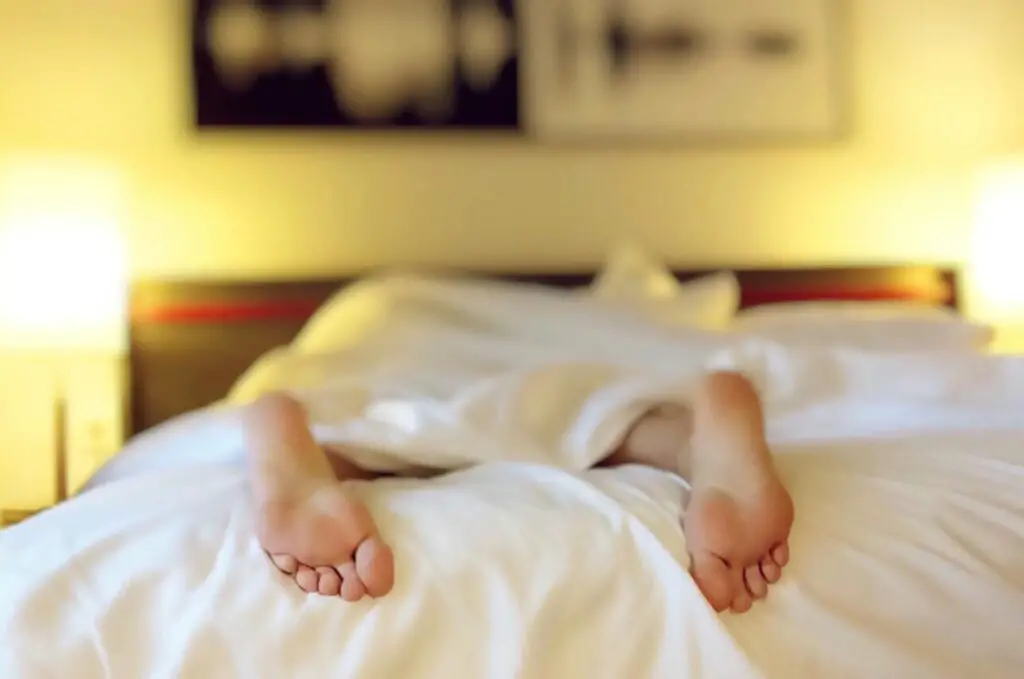
This one is more common in East Asian cultures, especially in feng shui. The idea is that sleeping with your feet pointed directly at the door mirrors how the dead are carried out of a room — feet first. That position is sometimes called the “coffin position,” and it’s believed to attract death or misfortune.
People rearrange their whole bedrooms just to avoid it. Even if you don’t follow feng shui, there’s something eerie about aligning yourself that way. Maybe it’s psychological, or maybe it’s one of those things you just don’t mess with. Either way, if your bed faces the door, you might start thinking twice at night. It’s a subtle, spooky superstition that sneaks into your thoughts.
12. Saying “Macbeth” in a Theater
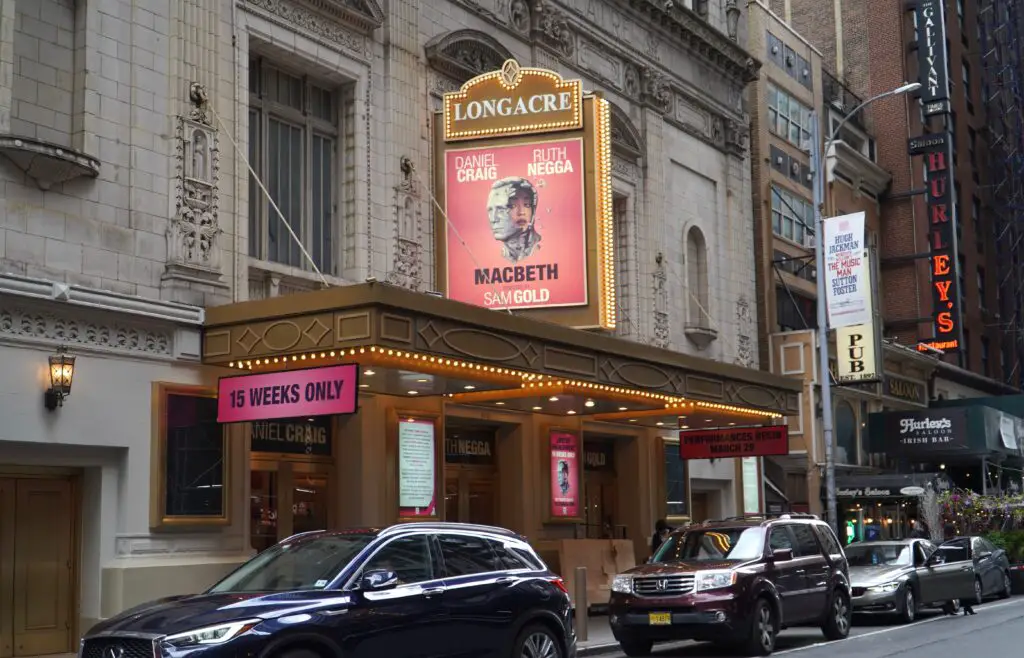
Actors are notoriously superstitious, and nothing gets them more worked up than someone uttering “Macbeth” inside a theater. It’s called the “Scottish Play” instead, because many believe the name brings chaos, accidents, or even death to a production. Stories of mishaps during performances go back centuries, reinforcing the fear.
If someone slips and says it anyway, there’s usually a ritual to cleanse the bad luck — like spinning around three times and spitting. Sounds theatrical, but that’s part of the charm. Even non-actors tend to respect the rule. It’s one of those traditions that feels like both a joke and a serious warning at the same time. Better safe than sabotaged, right?
13. Knocking on Wood
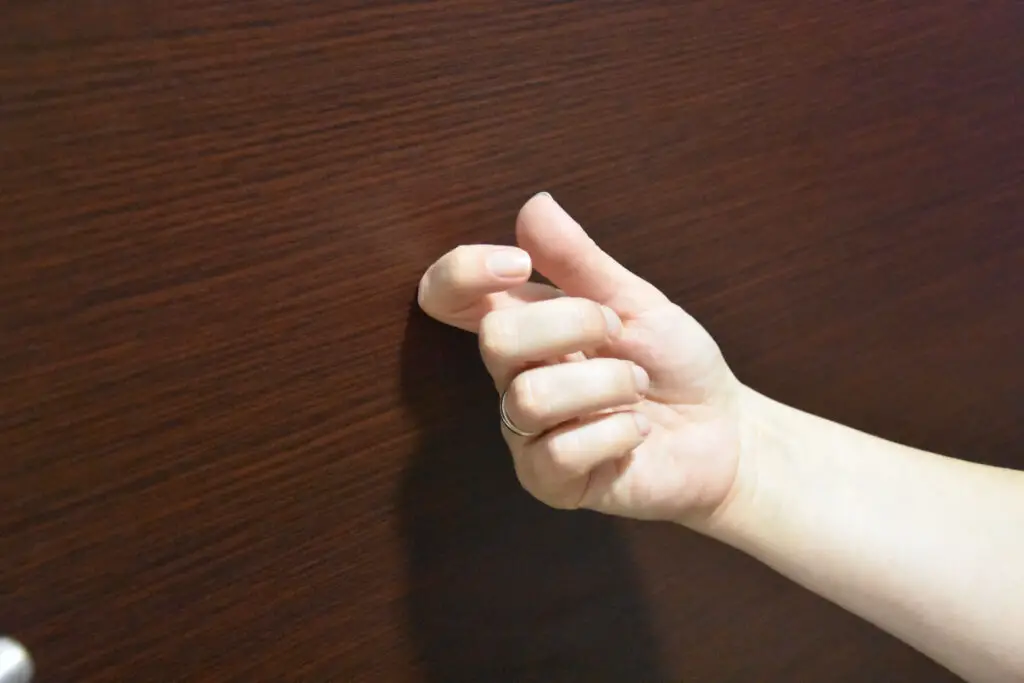
You probably do this without even thinking — say something hopeful, then immediately tap the nearest wooden surface. That reflex goes way back to ancient beliefs that spirits lived in trees. Knocking was a way to either wake them up for protection or to thank them for good luck.
Over time, it turned into a kind of good-luck charm. Say you’ve never broken a bone? Knock on wood, or you might jinx it. It’s one of the few superstitions that feels friendly, like a little wink to the universe. Even people who claim not to believe in “that stuff” usually do it anyway. There’s comfort in the ritual — just enough to make it stick.
